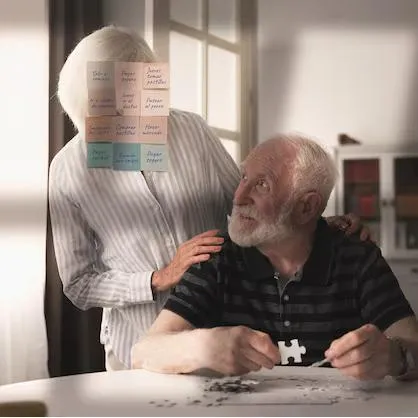Advanced Neurology, Personalized Care
DEMENTIA
Dementia: Causes, Symptoms, and Treatment
What is Dementia?
Dementia is a progressive neurological condition that affects memory, thinking, and behavior. It is not a single disease but rather a term used to describe a range of symptoms associated with cognitive decline. Alzheimer's disease is the most common form, but there are several other types, including vascular dementia, Lewy body dementia, and frontotemporal dementia.
Causes of Dementia
Dementia occurs due to damage to brain cells, which affects their ability to communicate. Some common causes include:
Alzheimer’s Disease – The buildup of amyloid plaques and tau tangles in the brain.
Vascular Dementia – Caused by reduced blood flow to the brain, often due to strokes or cardiovascular conditions.
Lewy Body Dementia – Linked to abnormal deposits of protein (Lewy bodies) in the brain.
Frontotemporal Dementia – Damage to the frontal and temporal lobes of the brain, affecting personality and behavior.


Common Symptoms
Dementia symptoms vary depending on the type and stage of the condition but generally include:
Memory Loss – Difficulty remembering recent events, names, or places.
Cognitive Decline – Struggling with problem-solving, planning, and decision-making.
Language Problems – Difficulty finding words, following conversations, or writing.
Personality Changes – Mood swings, depression, anxiety, and social withdrawal.
Disorientation – Getting lost in familiar places, confusion about time and place.
Difficulty Performing Daily Tasks – Struggles with routine activities like cooking or dressing.
Diagnosis of Dementia
Neurologists diagnose dementia through a combination of:
Medical History & Physical Examination – Assessing symptoms, family history, and cognitive function.
Cognitive Tests – Evaluating memory, problem-solving, and reasoning skills.
Brain Imaging – MRI and CT scans to detect brain abnormalities.
Laboratory Tests – Blood tests to rule out reversible causes like vitamin deficiencies or infections.


Treatment & Management
While there is no cure for most types of dementia, treatments can help manage symptoms and improve quality of life. These include:
Medications
Cholinesterase Inhibitors (e.g., Donepezil, Rivastigmine) – Improve communication between brain cells..
Memantine – Helps regulate glutamate, a neurotransmitter involved in learning and memory.
Medications for Behavioral Symptoms – Antidepressants, antipsychotics, or anti-anxiety drugs if needed.
Lifestyle Changes & Support
Cognitive Therapy – Brain exercises, puzzles, and memory training.
Healthy Diet – Mediterranean diet rich in antioxidants, omega-3 fatty acids, and vitamins.
Support Groups & Caregiving –
Professional care, family support, and therapy for caregivers.
Preventing Dementia
Although some risk factors like aging and genetics cannot be changed, lifestyle modifications can reduce the risk:
Maintain a healthy diet and stay physically active.
Keep the brain engaged through reading, puzzles, and learning new skills.
Manage conditions like diabetes, high blood pressure, and cholesterol.
Stay socially connected and manage stress and depression effectively.

Get Expert Help

If you or a loved one is experiencing memory loss or cognitive decline, early diagnosis is key to effective management. Consult with our neurology specialists for personalized assessment and care plans.
Our Locations
To learn more about our experience or discuss your treatment options, please call us at (301) 797-7600 or schedule a consultation today!
Get our wellness newsletter
Filter out the noise and nurture your inbox with health and wellness advice that’s inclusive and rooted in medical expertise.
Useful Links
Contact Us
Complaint and Queries
(301) 517-7636
About | Careers
© Copyright 2025. Mir Neurology. All Rights Reserved.
A Part of Highland Healthy Living. Powered By CareSyncMarketing



